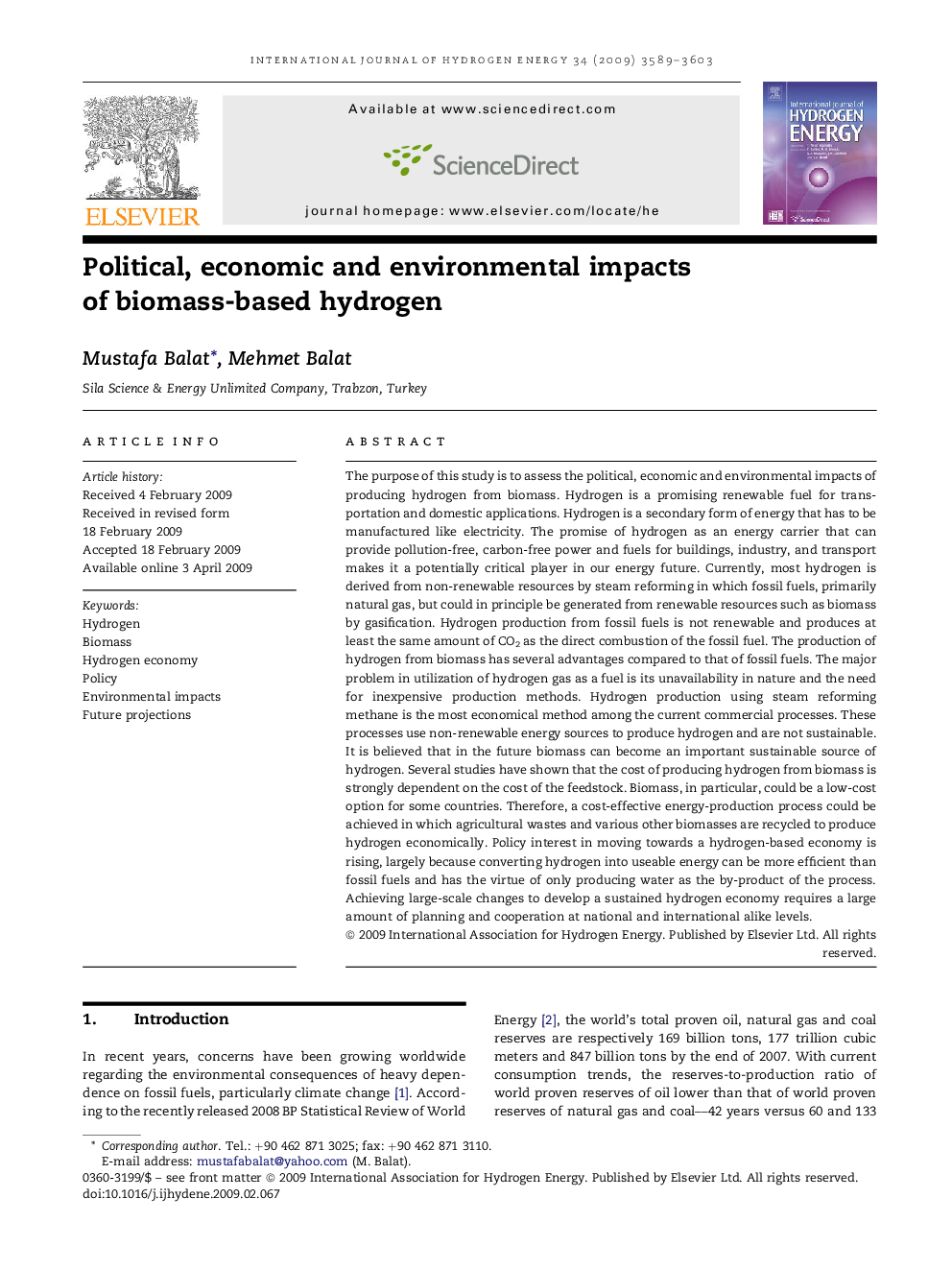| کد مقاله | کد نشریه | سال انتشار | مقاله انگلیسی | نسخه تمام متن |
|---|---|---|---|---|
| 1278988 | 1497633 | 2009 | 15 صفحه PDF | دانلود رایگان |

The purpose of this study is to assess the political, economic and environmental impacts of producing hydrogen from biomass. Hydrogen is a promising renewable fuel for transportation and domestic applications. Hydrogen is a secondary form of energy that has to be manufactured like electricity. The promise of hydrogen as an energy carrier that can provide pollution-free, carbon-free power and fuels for buildings, industry, and transport makes it a potentially critical player in our energy future. Currently, most hydrogen is derived from non-renewable resources by steam reforming in which fossil fuels, primarily natural gas, but could in principle be generated from renewable resources such as biomass by gasification. Hydrogen production from fossil fuels is not renewable and produces at least the same amount of CO2 as the direct combustion of the fossil fuel. The production of hydrogen from biomass has several advantages compared to that of fossil fuels. The major problem in utilization of hydrogen gas as a fuel is its unavailability in nature and the need for inexpensive production methods. Hydrogen production using steam reforming methane is the most economical method among the current commercial processes. These processes use non-renewable energy sources to produce hydrogen and are not sustainable. It is believed that in the future biomass can become an important sustainable source of hydrogen. Several studies have shown that the cost of producing hydrogen from biomass is strongly dependent on the cost of the feedstock. Biomass, in particular, could be a low-cost option for some countries. Therefore, a cost-effective energy-production process could be achieved in which agricultural wastes and various other biomasses are recycled to produce hydrogen economically. Policy interest in moving towards a hydrogen-based economy is rising, largely because converting hydrogen into useable energy can be more efficient than fossil fuels and has the virtue of only producing water as the by-product of the process. Achieving large-scale changes to develop a sustained hydrogen economy requires a large amount of planning and cooperation at national and international alike levels.
Journal: International Journal of Hydrogen Energy - Volume 34, Issue 9, May 2009, Pages 3589–3603